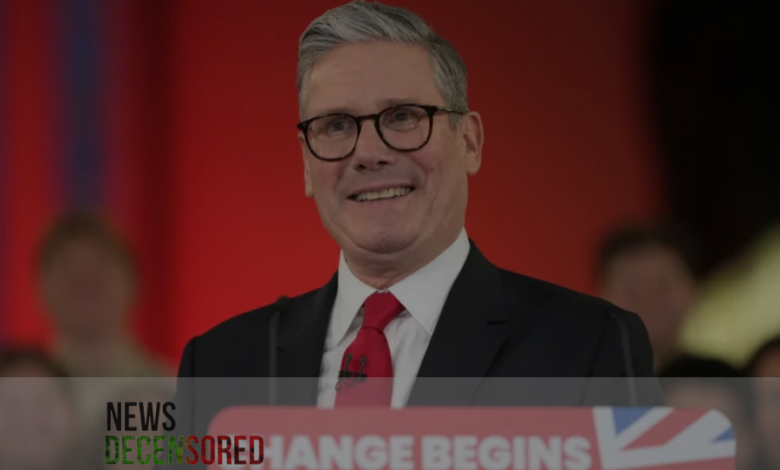UK Prime Minister Keir Starmer Calls for Urgent Gaza Ceasefire

What has come as a significant policy shift, the newly appointed UK Prime Minister, Keir Starmer, criticized an urgent ceasefire in Gaza. This is a turn of events in the UK’s stance over the continuing conflict between Israel and Hamas, reflecting the growing concern of the international community about the humanitarian situation arising out of this crisis in the region.
On the need for an immediate end to hostilities, Starmer stressed that violence needed to stop to avoid losing more lives and humanitarian crises. “The fighting must stop now,” he insisted, referring to the need for a “ceasefire that lasts,” unlike a mere pause in the fighting. His comments come at the right time while tensions in Gaza are running high, with thousands already killed.
Starmer’s call to action for a ceasefire is in tandem with almost global appeals for peace and humanitarian relief. This has already been a source of significant civilian and infrastructural losses, hence calls from international leaders and humanitarian organizations for prompt action. The prime minister’s statement represents a broader consensus on the need for a sustainable solution to the crisis.
The response to Starmer’s appeal has been mixed. Although many of his party and others across the political spectrum voiced support, few still need to be convinced that any lasting ceasefire can be secured without dealing with the underlying issues. Scottish Labour leader Anas Sarwar and Manchester Mayor Andy Burnham reaffirmed calls for an immediate end to the violence, citing the pressing need for humanitarian aid and the release of hostages.
However, some critics have argued that such a one-off ceasefire cannot secure long-term peace and stability in the region. These same critics are urging a much more comprehensive approach aimed at getting to the root causes of the conflict: the blockade on Gaza, the political status of Palestinian territories, and security concerns regarding Israel.
This demand for a ceasefire by Starmer comes amidst broader efforts at diplomacy to handle the conflict. Just back from the Munich Security Conference, where what is currently going on in Gaza topped the list of crucial subjects, Starmer has positioned the UK as faded in seeking a resolution. His presence in international forums shows his commitment to using these channels of diplomacy to engender peace and stability in the Middle East.
Starmer’s position on Gaza signals a paradigm shift for the UK regarding foreign policy. His government will likely play an active role in global peace missions, as it will continue to work for humanitarian solutions with particular geopolitical nuances. That template or disposition will impact future UK action and alliance vis-à-vis the Middle East theater of conflict.
This emergency call by Prime Minister Keir Starmer for a Gaza ceasefire is a defining moment in the UK’s response to the conflict. Starmer calls for the immediate and long-term cessation of violence to mend the humanitarian crisis and join international demands for peace. The forthcoming weeks will determine how this policy shift will be played on the ground and within the global diplomatic arena.




